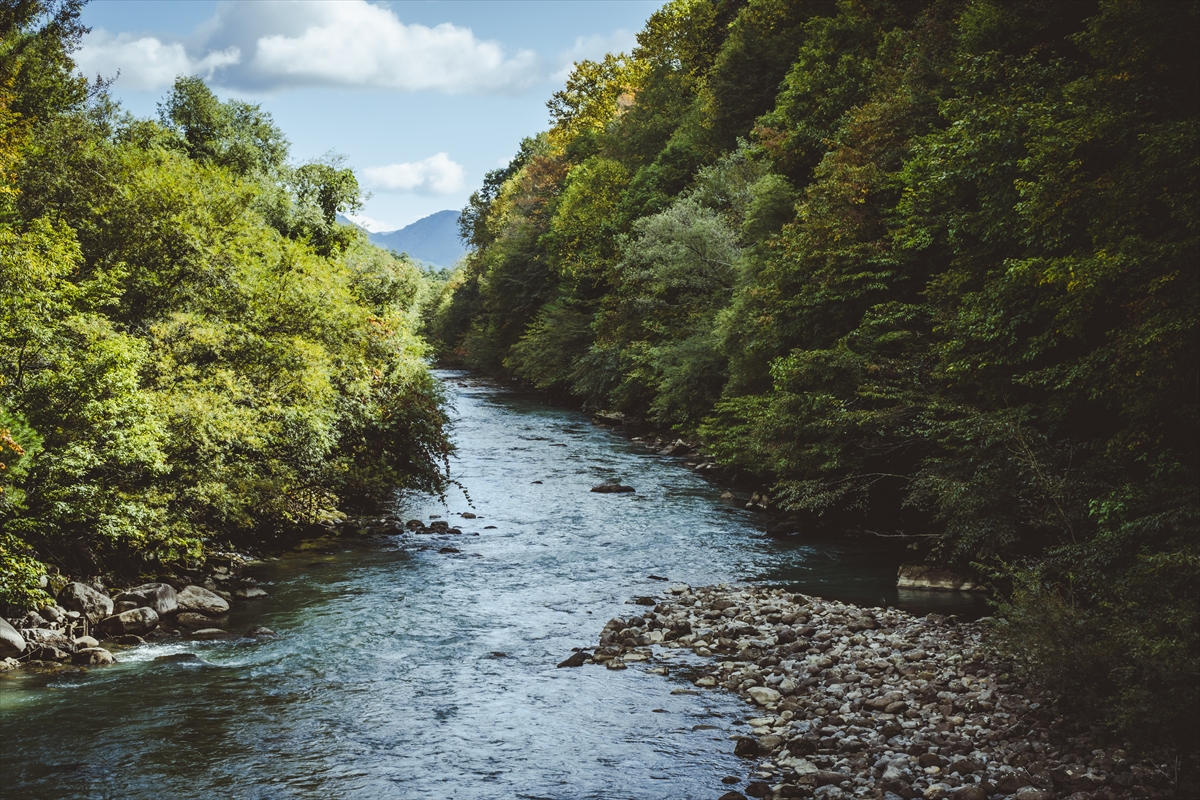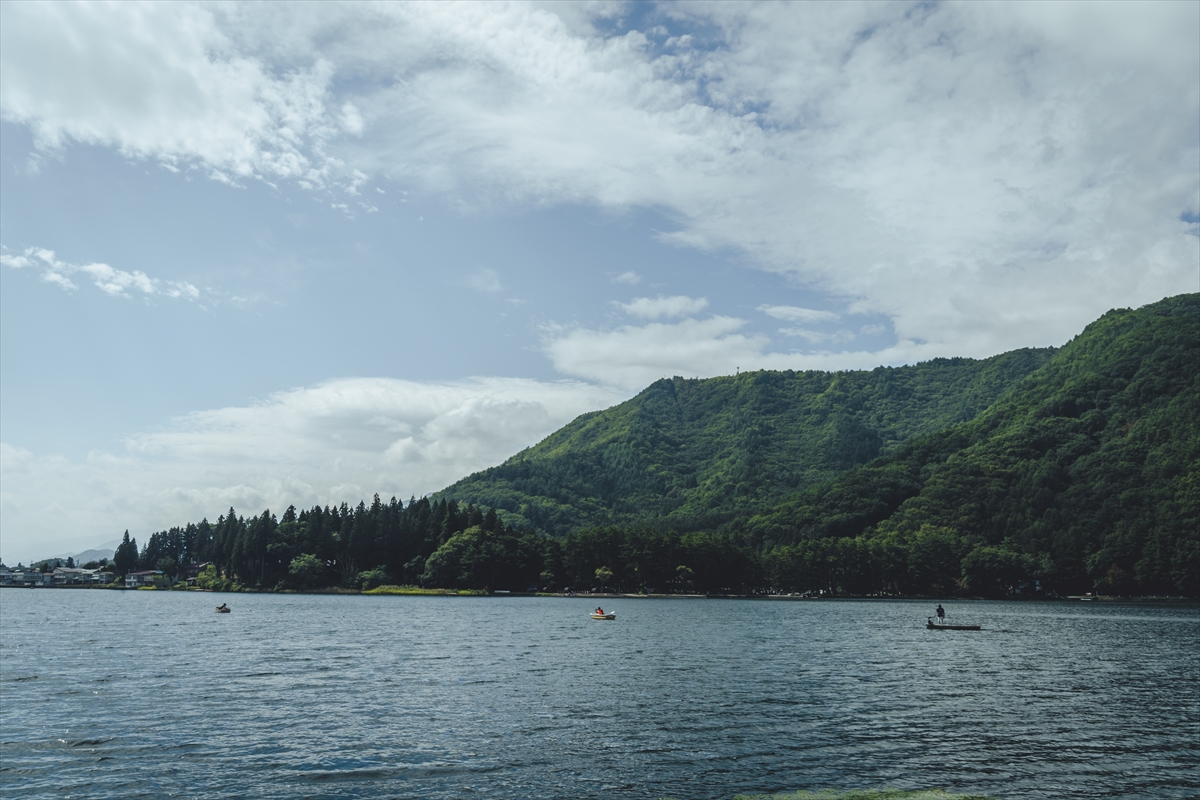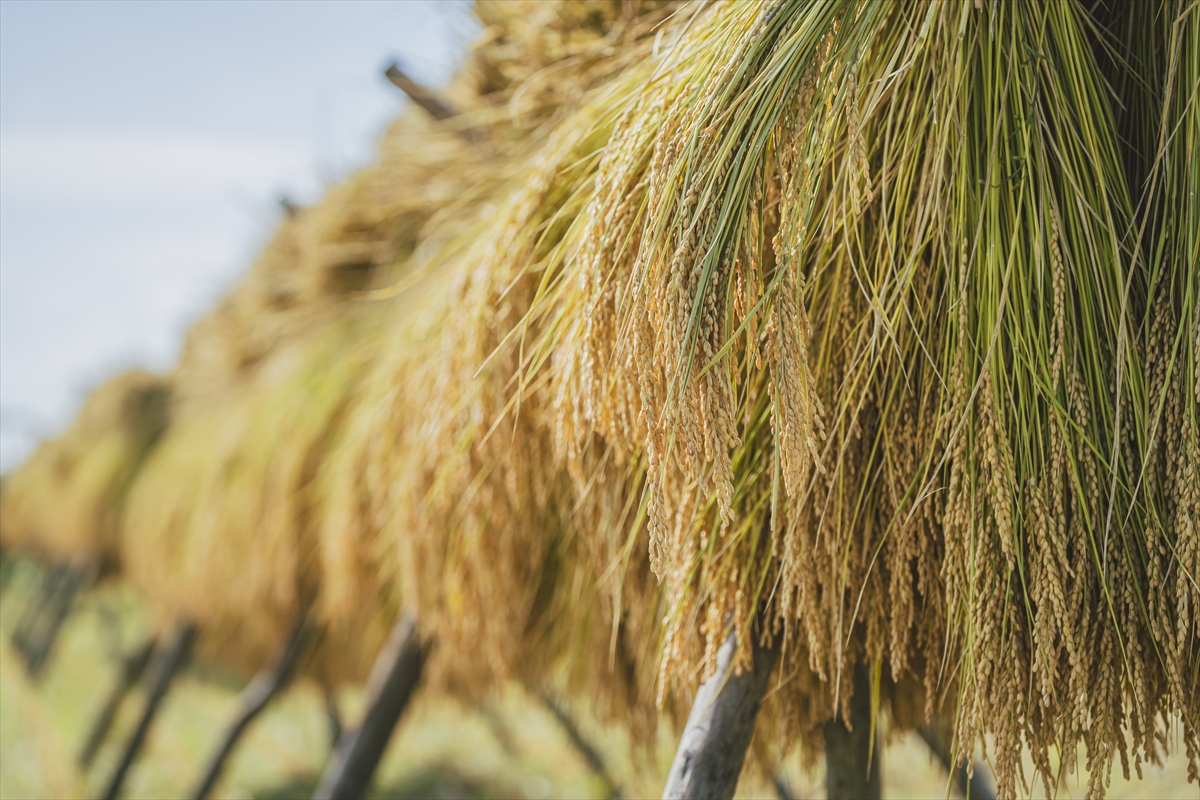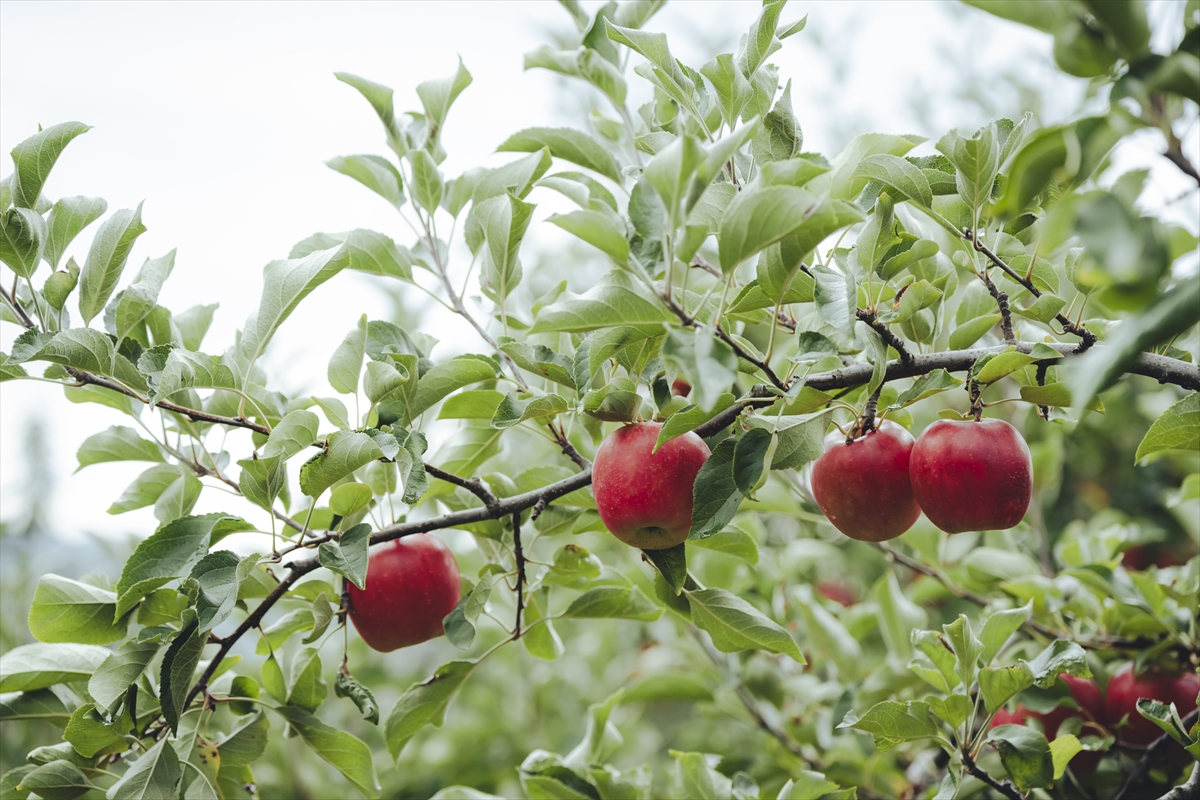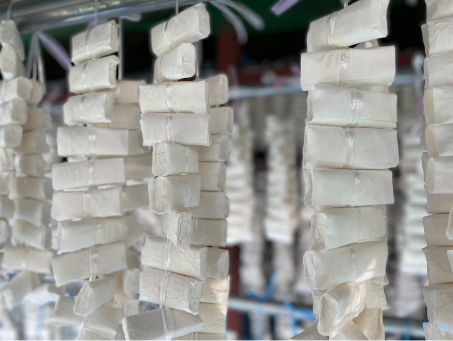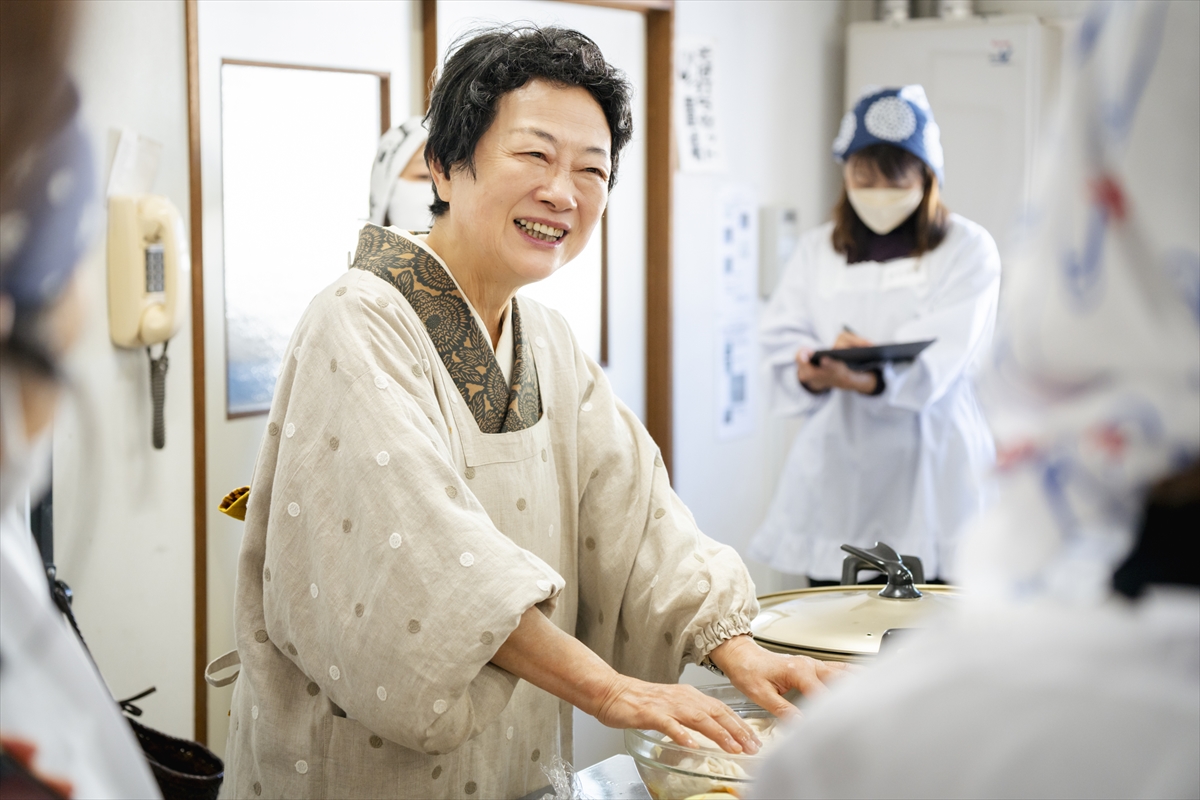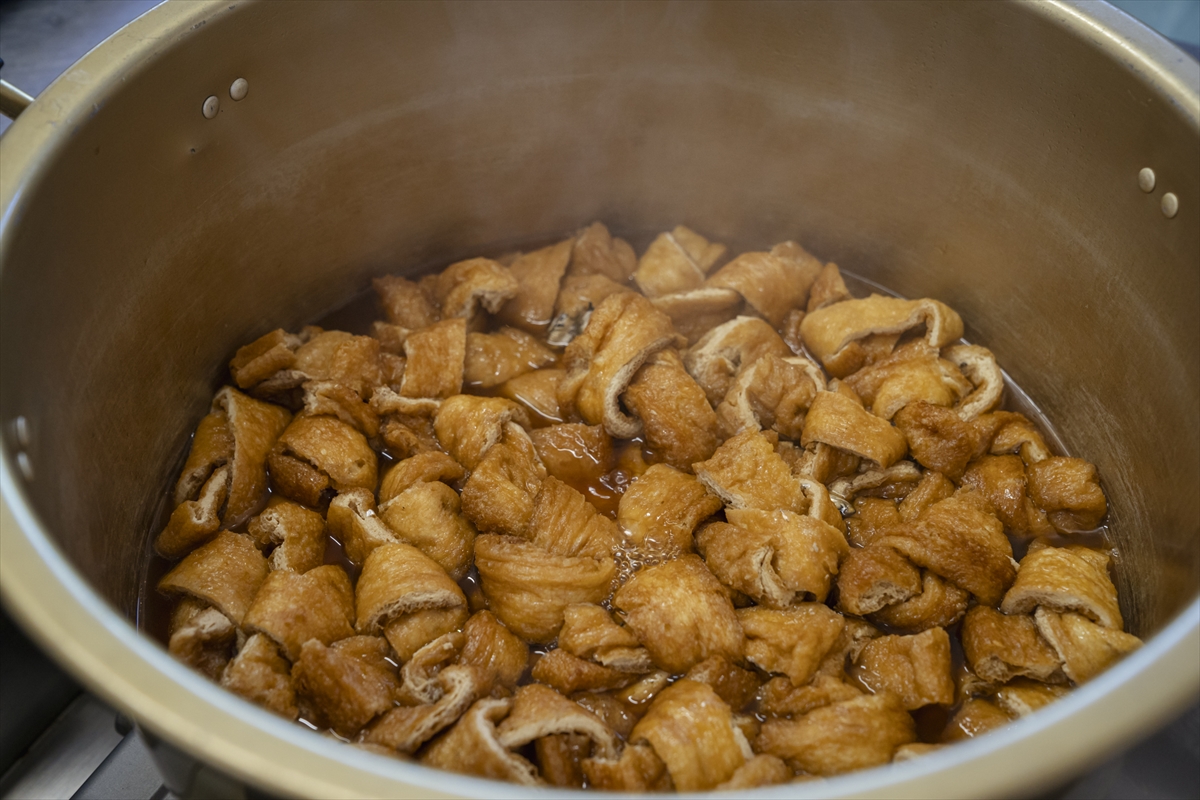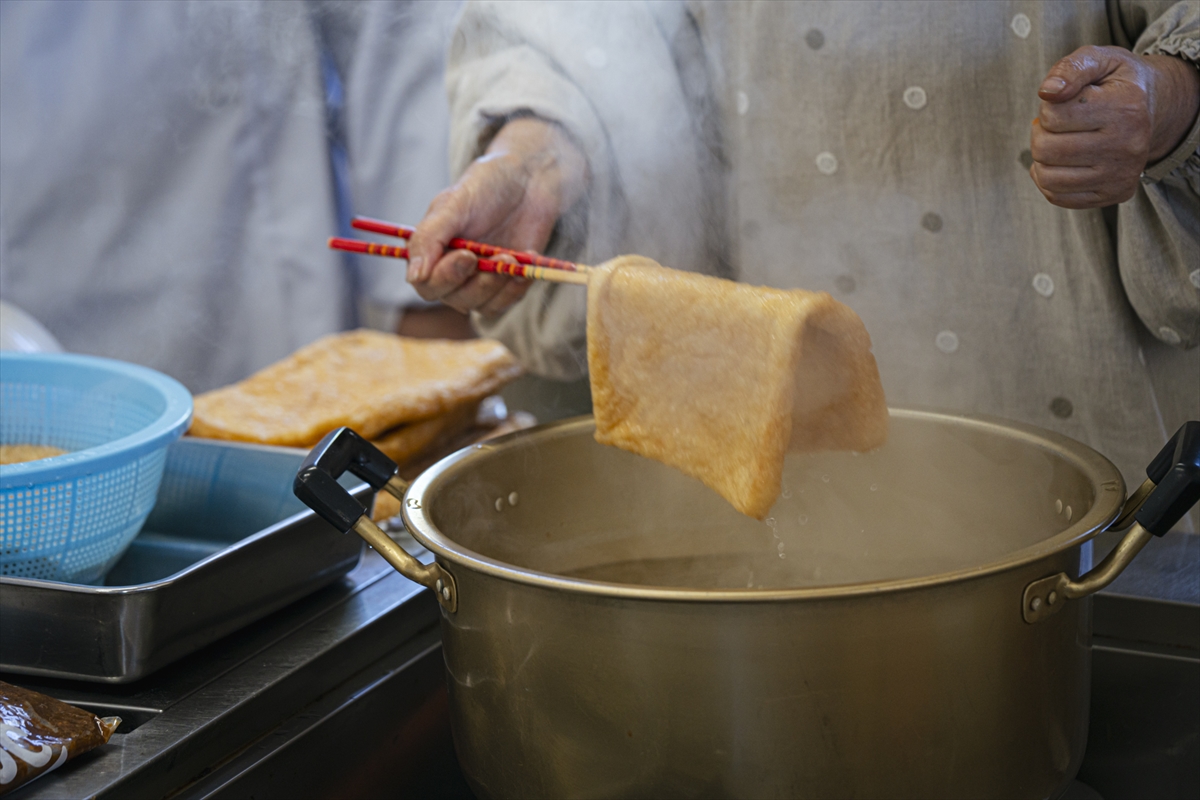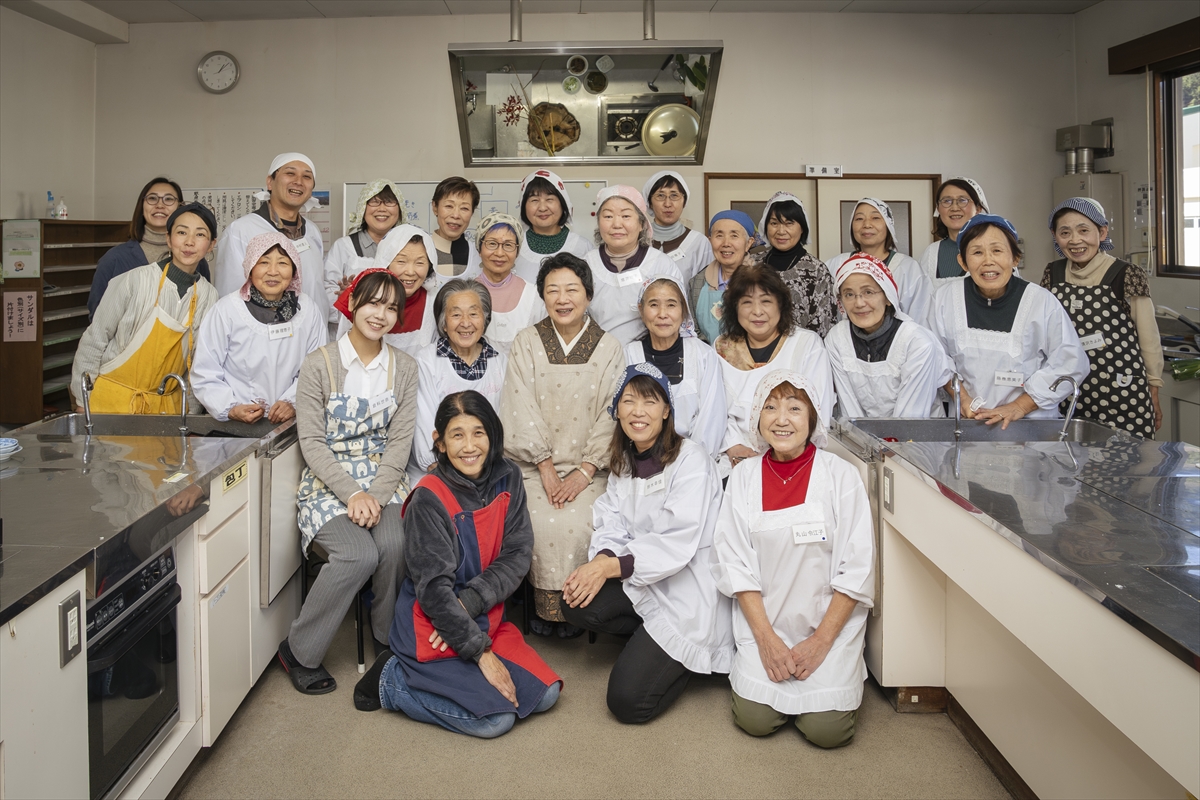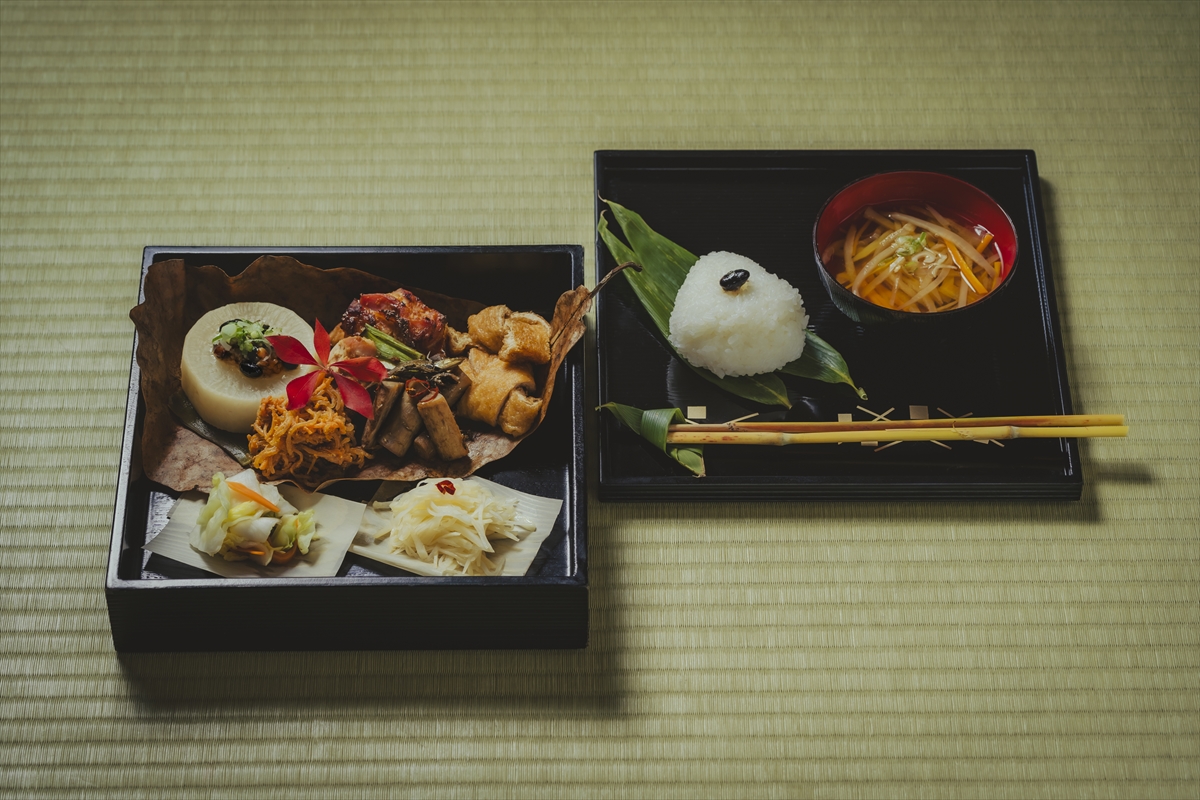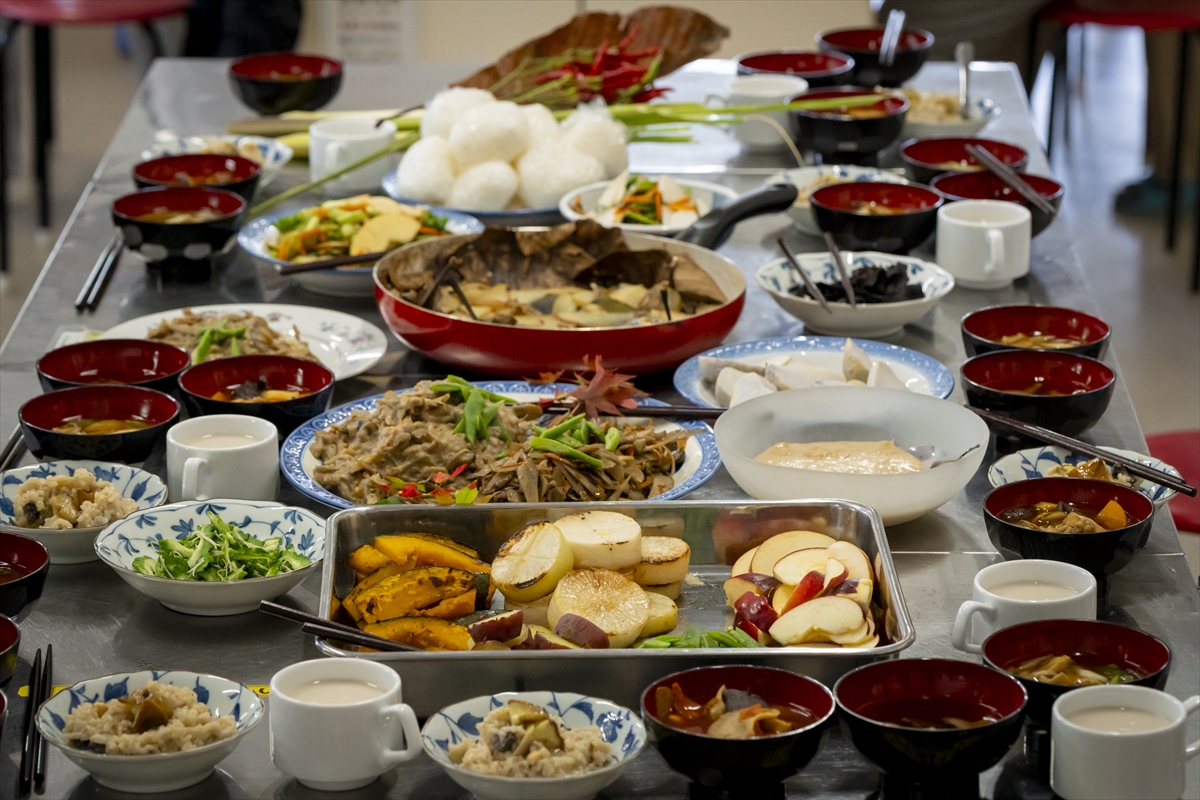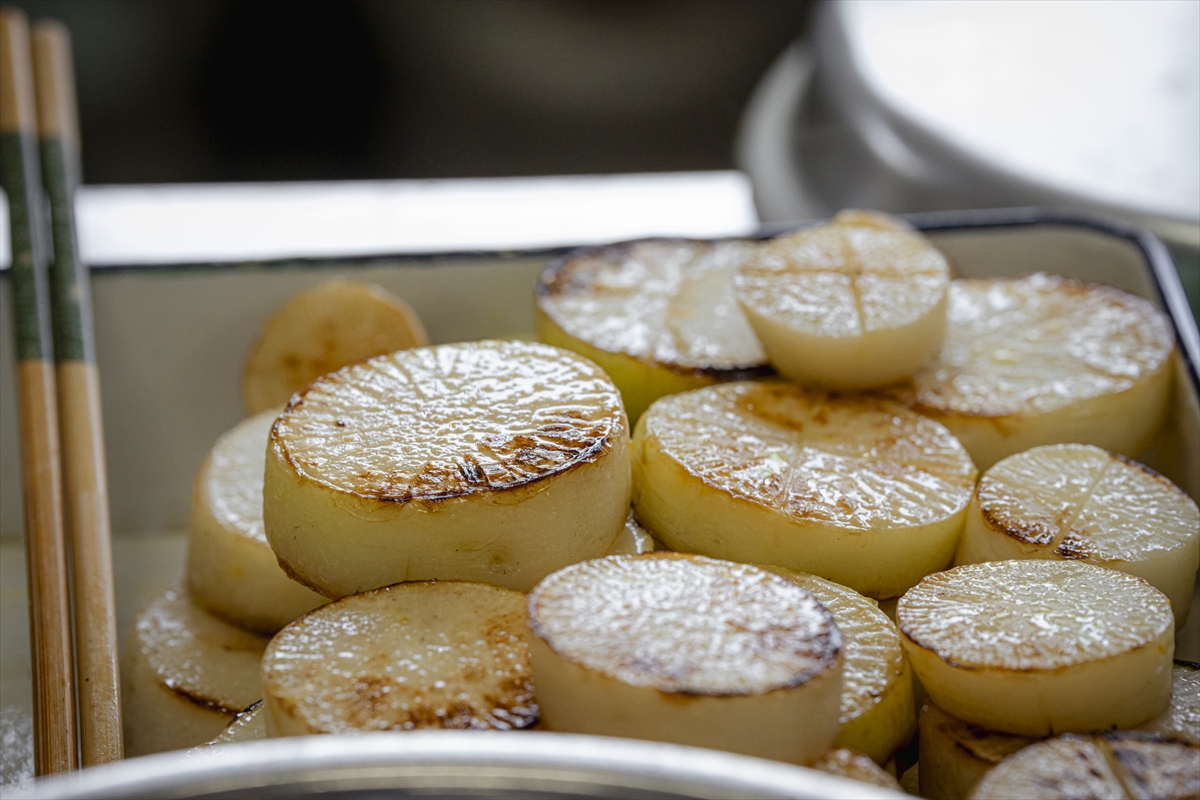Embraced by the Northern Alps: The Spirit and Culinary Culture of Omachi
The root of Omachi's culture lies in snow and forests.

The root of Omachi's culture lies in snow and forests.

Omachi is a mountainous city located in the northwestern part of Nagano Prefecture. The Northern Alps, stretching along the western side of the city area, significantly influence its climate and culture. In winter, the 3000-meter-class mountains are blanketed in deep snow, and with the arrival of late spring, the pure, melting snow water begins to flow. The abundant water is stored by the forests and gradually fills the villages.
The lakes known as the Nishina San-Ko – Aoki Lake, Nakatsuna Lake, and Kizaki Lake – are connected by the Nougu River, ultimately flowing into the class A river, Takase River. Along with plentiful spring water, development for domestic and paddy field water supply has progressed over the years. This has been crucial for various industries, including agriculture and manufacturing. Life in Omachi has flourished hand in hand with the abundant water resources.
Pure and abundant water is the symbol of Omachi, and to protect this water, the presence of the forest is indispensable. In Omachi, there has been a long-standing culture of hunting, with people entering the mountains, coexisting, and benefiting from them. While the forms of coexisting have changed over time, even today in Omachi, people continue to harvest, maintain the forests, and live alongside the mountains, sometimes participating in rituals and ceremonies.
The wisdom of the people harnessing the climate.
The wisdom of the people harnessing the climate.


The rich and delicious water, along with the difference in temperature between day and night, nurtures high-quality agricultural products and processed goods such as rice, apples, and sake in Omachi. While agriculture faces challenges such as the cold water from snowmelt and the cool climate, farmers have implemented various innovations, including warming agricultural water and breeding varieties suited to the climate, to overcome these challenges. This continuous effort has led to the present agricultural success.
"Ko-ri Mochi", Frozen rice cake is a preserved food that reflects the rich culture of Omachi, created by repeatedly soaking in water and drying, especially during the severe cold weather around February. While this tradition is passed down in several places in Nagano Prefecture, Omachi stands out for the diversity in its cooking methods.
In the past, people used the thawing of snow in the Northern Alps as a guide to determine the optimal timing for agricultural activities such as plowing the soil and sowing seeds.
Similar to creating constellations by connecting stars, there are many traditions of naming and attributing shapes to the melting patterns of snow, known as "yukigata" (snow shapes). In these practices, you can catch glimpses of the people of Omachi living in harmony with nature.
Learning about local dishes in Omachi from culinary researcher Takako Yokoyama

Learning about local dishes in Omachi from culinary researcher Takako Yokoyama

Mrs.Takako Yokoyama, a culinary researcher born and raised in Omachi and currently residing in Nagano City, also mentions that the greatest charm of Omachi lies in its beautiful nature. She notes that the cold water nurtures crops over time, allowing them to absorb nutrients from the soil. The combination of sunlight and day-night temperature variations contributes to cultivating high-quality agricultural products, making Yokoyama endorse the agricultural produce of Omachi.
Her memorable local dishes from Omachi include boiled salted trout, deep-fried tofu knots, and frozen rice cakes. Particularly, dishes served during events and ceremonies have left a lasting impression. She shared memories like "On Ushi-no-Hi (The Midsummer day of the Ox), we ate udon and uri (cucumbers), foods starting with 'u'", and "On August 26th, during the Misayama-sama festival, we have somen noodles with kaya (Japanese nutmeg-yew) chopsticks."
She also mentioned, "In the past, it was common for neighbors to gather and prepare dishes together during funerals. Many people learned local recipes through these occasions. Due to the urgency, they would make dishes using whatever ingredients are available. It's the ultimate local cuisine, isn't it?" The previously mentioned deep-fried tofu knots is a perfect example.
Bridging old and new, evolving local dishes.
Bridging old and new, evolving local dishes.


"Unraveling the past is the newest thing," says Mrs.Yokoyama. While cherishing dishes and traditions inherited from her mother and predecessors from various regions, she adds her own touch, refining them. With improved distribution and preservation techniques today, she finds that subtle seasoning is sufficient. With a spirit of learning from the past and applying new insights, she explores the flavors of the local cuisine that are relevant to the present.
The local dish "Imo-namasu" from places like Iiyama City and Nozawa Onsen Village is now one of Mrs.Yokoyama's staple dishes, learned from local women. Her touch is to drizzle rapeseed oil over it after taking it out of the pot.
Interestingly, it seems that "Imo-namasu" has also taken root in the surrounding areas of Omachi. According to locals, when women move to a new place after marriage, they bring the cooking style and ingredients from their hometown. Over time, these elements blend with the local taste, becoming a part of the regional cuisine.
"YAMANBA Girls," nurturing and passing on the food culture of Omachi.

"YAMANBA Girls," nurturing and passing on the food culture of Omachi.

While the local cuisine of Omachi may seem to have remained unchanged for a long time, in reality, it is evolving every day. Playing a role in this evolution are the "YAMANBA Girls," a group of women from Omachi.
The group was formed during the "Northern Alps International Art Festival" held in Omachi in 2017. As local participants in the art festival, they performed "*Okohiru no Kioku," a performance that entertained with local cuisine and folktales.
*Okohiru = The substantial snacks eaten during agricultural work.
*Kioku = Memory
The members, although skilled, never neglect to learn. In study sessions held in October and November 2023, they learned from Mrs. Takako Yokoyama and also Mr. Masakazu Kitazawa, who runs "Shokunin-kan", a restaurant in Saku City, Nagano, specializing in handmade soba and colorful dishes from local villages. They flexibly incorporate new knowledge and perspectives regarding cooking methods, ingredients, and seasonings. The dishes and techniques acquired in these sessions are showcased in events such as art festivals and cooking experience tours.
Cuisine that complements ingredients and harmonizes with daily life.

Cuisine that complements ingredients and harmonizes with daily life.

One of the instructors at the study sessions, Mr. Kitazawa, who travels nationwide, emphasizes that "the local climate shapes the cuisine". He also refers to himself as the "culinarian of the Earth". According to him, "The charm of Omachi lies primarily in the mountains. Ingredients nurtured by pure snowmelt water have exceptionally strong individual characteristics."
The dishes created by Mr. Kitazawa using these ingredients range from simple sautéed dishes with pumpkin and daikon seasoned with olive oil and salt to creative ideas like Hime-masu (smelt fish) and apple steamed with magnolia leaves, matsutake mushroom risotto, and frozen rice cakes with soy milk dessert, brimming with innovative concepts.
A participant in the study sessions remarked, "There are cooking methods I've never thought of before, but the way he makes the most of the ingredients is just like what we do in our daily cooking. It's pretty easy to catch on, and I'm thinking of giving it a shot at home. Oh, and Mr. Kitazawa doesn't do recipes, so it's like, you gotta add your own flair, you know!"
By incorporating various ideas and further adapting them to their daily lives, participants make Omachi's local cuisine more enjoyable and rich in the flavors of the region.
"YAMANBA Girls Share the Charm of Omachi's Cuisine"
We asked the members of YAMANBA Girls about the charm of Omachi's cuisine. The allure of Omachi's food lies within nature. The more you discover, the more you can't help but want to savor the rich flavors while gazing at the landscape embraced by the Northern Alps.

"Mushrooms, mountain vegetables, akebia (chocolate-vine), and kiwi berries... In the past, I used to shy away from these because of the effort, but now I truly believe that these fresh, natural ingredients picked from nearby mountains are the real 'feast.'"
Keiko Matsuzaka (Born and residing in Omachi)
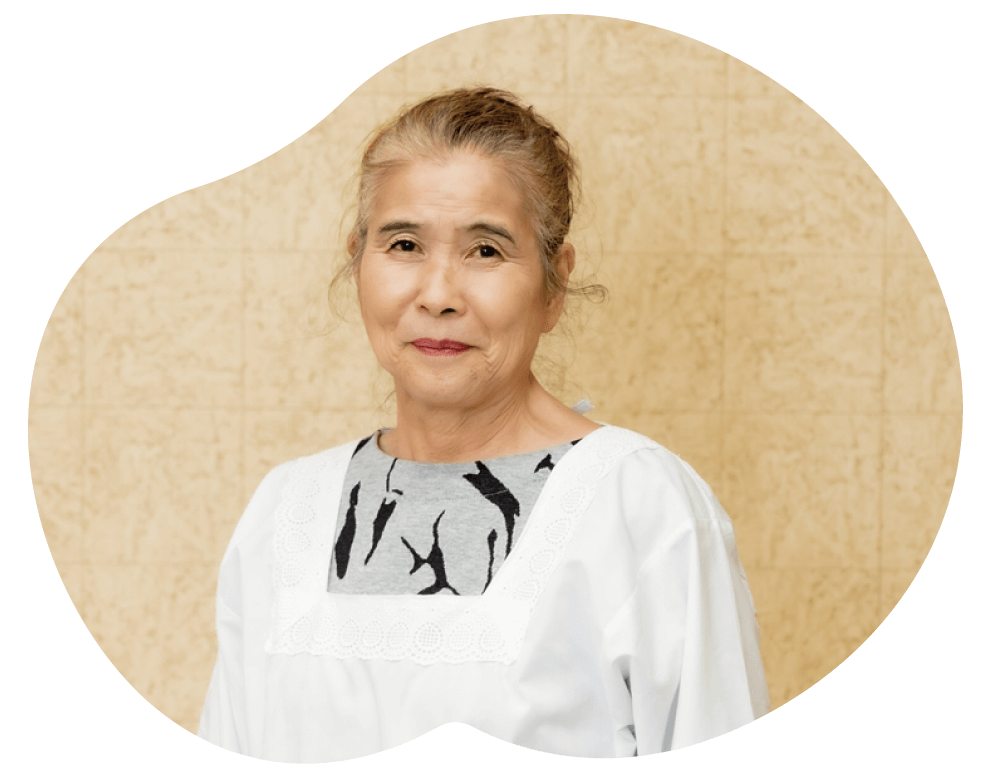
"Omachi makes an effort to use locally sourced ingredients as much as possible in school lunches. It's wonderful for children to learn about the deliciousness of regional cuisine made with good ingredients and seasonings."
Chieko Karasawa (Resident of Omachi, involved in school lunches)
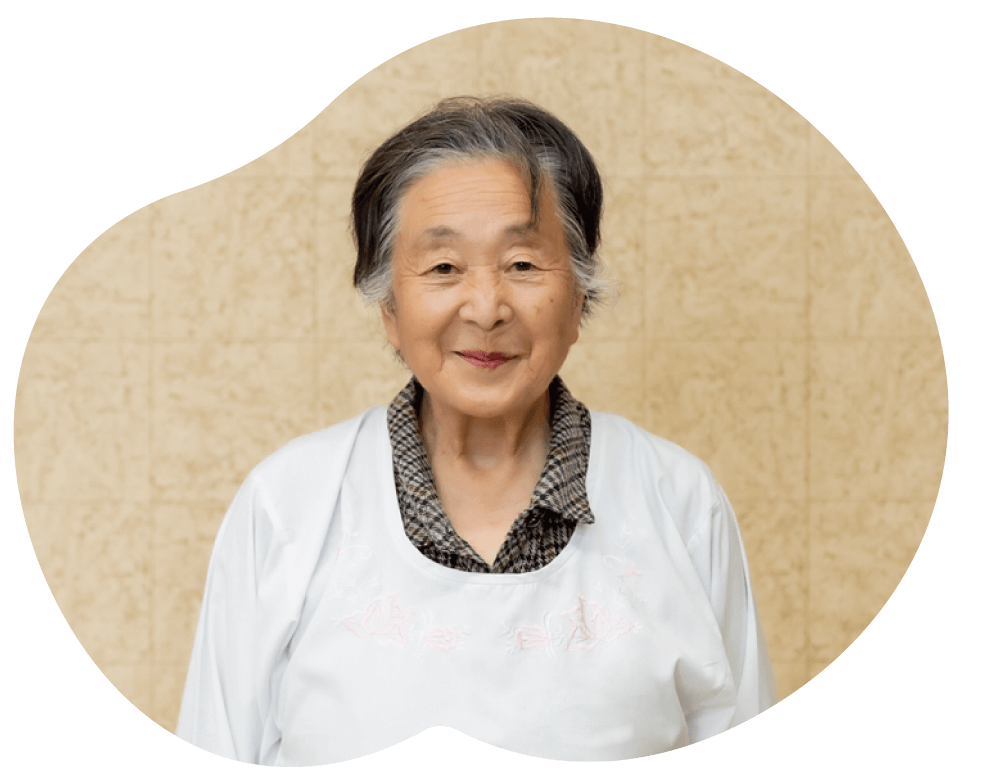
"Growing over 20 types of vegetables in the field, I gather wild vegetables and mushrooms in the mountains during spring and autumn. The joy of sharing them with others and receiving cooking tips from them is what I look forward to."
Yuriko Nishizawa
(Born and living in Omachi)

"I participated in the 2017 art festival, and I was amazed by the deliciousness of Omachi's vegetables, perhaps because of the abundant snow and resting time for the soil. Drawn to the unique and robust flavors found only here, I keep coming back."
Etsuko Tanabe
(Manages a restaurant in Kanagawa Prefecture)
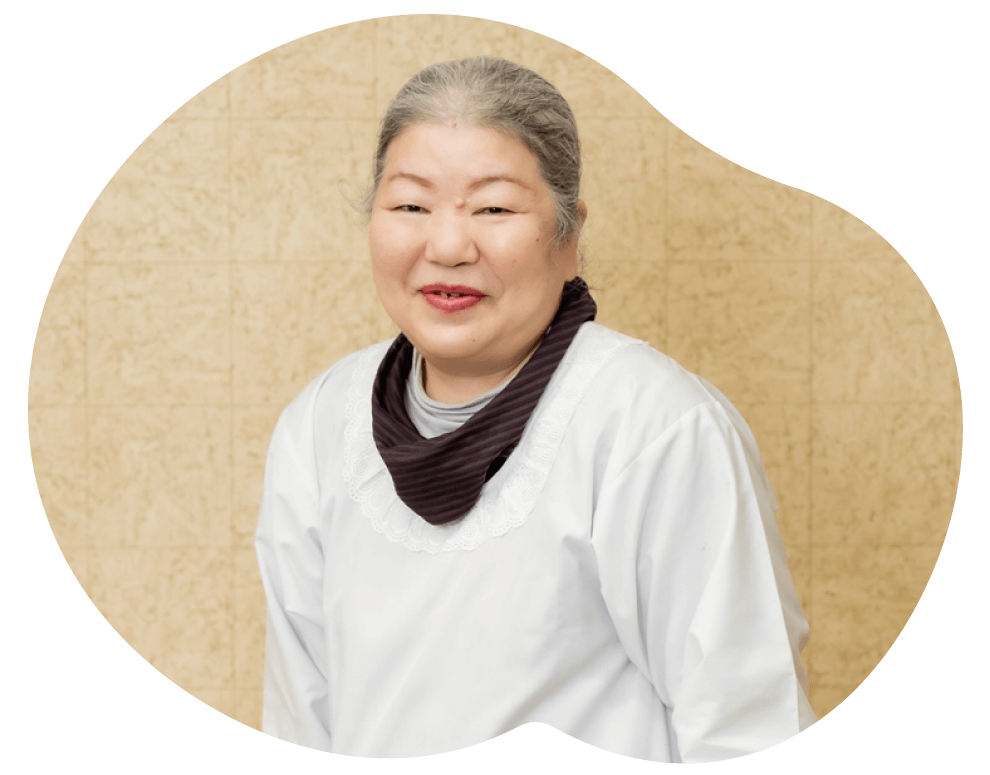
"Having moved here, I was impressed by the great water and the peacefulness of the town. I love cooking that brings out the best in ingredients, so the excellent ingredients of Omachi with its good water and soil are very fascinating, making cooking enjoyable. Especially, the spring mountain vegetables are exceptional."
Setsuko Masubuchi
(Moved to Omachi from the metropolitan area 10 years ago)
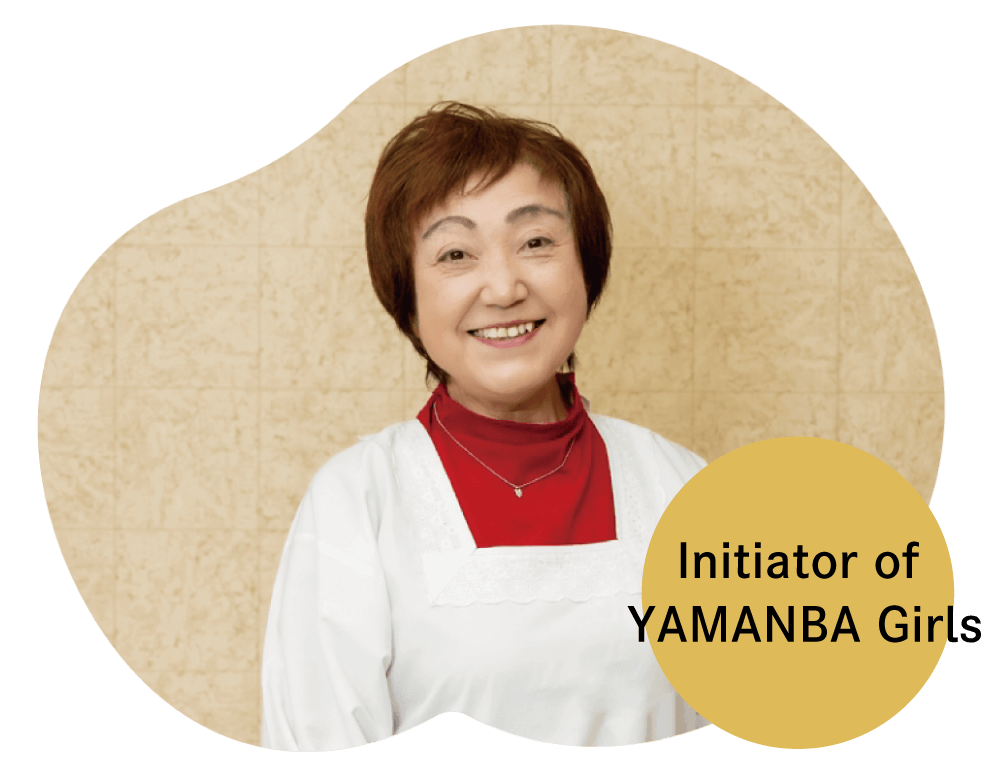
"The charm of Omachi's food lies not only in the taste of the dishes but also in the meticulous efforts to use only seasonal ingredients and the hospitality embedded in the presentation, such as arranging seasonal flowers. This is the significant allure of Omachi's cuisine."
Reko Maruyama
(Initiator of YAMANBA Girls)
"YAMANBA Girls Share the Charm of Omachi's Cuisine"
We asked the members of YAMANBA Girls about the charm of Omachi's cuisine. The allure of Omachi's food lies within nature. The more you discover, the more you can't help but want to savor the rich flavors while gazing at the landscape embraced by the Northern Alps.

"Mushrooms, mountain vegetables, akebia (chocolate-vine), and kiwi berries... In the past, I used to shy away from these because of the effort, but now I truly believe that these fresh, natural ingredients picked from nearby mountains are the real 'feast.'"
Keiko Matsuzaka(Born and residing in Omachi)

"Omachi makes an effort to use locally sourced ingredients as much as possible in school lunches. It's wonderful for children to learn about the deliciousness of regional cuisine made with good ingredients and seasonings."
Chieko Karasawa(Resident of Omachi, involved in school lunches)

"Growing over 20 types of vegetables in the field, I gather wild vegetables and mushrooms in the mountains during spring and autumn. The joy of sharing them with others and receiving cooking tips from them is what I look forward to."
Yuriko Nishizawa (Born and living in Omachi)

"I participated in the 2017 art festival, and I was amazed by the deliciousness of Omachi's vegetables, perhaps because of the abundant snow and resting time for the soil. Drawn to the unique and robust flavors found only here, I keep coming back."
Etsuko Tanabe (Manages a restaurant in Kanagawa Prefecture)

"Having moved here, I was impressed by the great water and the peacefulness of the town. I love cooking that brings out the best in ingredients, so the excellent ingredients of Omachi with its good water and soil are very fascinating, making cooking enjoyable. Especially, the spring mountain vegetables are exceptional."
Setsuko Masubuchi (Moved to Omachi from the metropolitan area 10 years ago)

"The charm of Omachi's food lies not only in the taste of the dishes but also in the meticulous efforts to use only seasonal ingredients and the hospitality embedded in the presentation, such as arranging seasonal flowers. This is the significant allure of Omachi's cuisine."
Reko Maruyama (Initiator of YAMANBA Girls)
\Click here for tour details and application/
Click here for tour details and application


